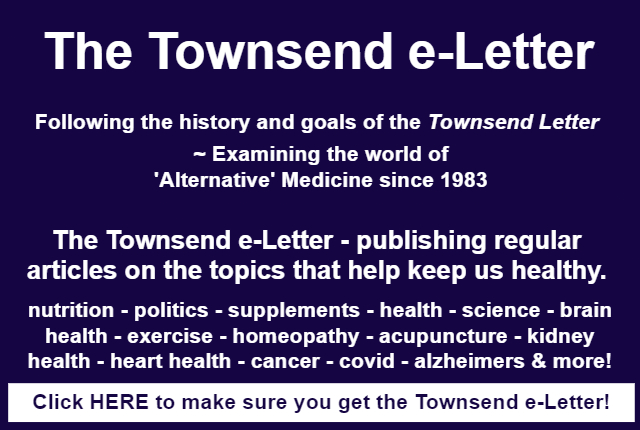Davis W. Lamson, MS, ND
Tahoma Clinic, Tukwila, Washington
Please understand from the start, the writer is not against the FDA. It was established for the best of reasons: to protect the citizens from what at the time were dangerous materials offered for sale.
The oversight and regulation of synthetic pharmaceutical company products is obviously appropriate. Molecules not naturally occurring in the body or part of the beneficial food supply should be carefully screened before we use them.
But along the way the FDA seemed to “get married” to pharmaceutical companies. A close relationship was inevitable, but it has become like an abusive marriage where the abused partner will not leave for various reasons. The FDA certainly does not think outside the box of pharmaceutical agents for the health of our citizens. More on that below.
Case in point – in June 2021, the FDA approved the intravenous drug aducanumab, an amyloid monoclonal antibody that targeted and reduced beta-amyloid deposits in the brain. There was considerable “hue and cry” in the medical community due both to its high expense and seeming lack of good evidence that it was beneficial. It still seemed unsettled whether amyloid protein was the cause of Alzheimer’s or a result of it. Additionally, it was pointed out that after a certain amount of neurological damage, removing the cause does not necessarily reverse the condition.
This resulted in the writer making a YouTube video appealing for investigation of a safe-for-humans, over-the-counter enzyme shown to remove amyloid plaque from the brains of animals. Details on this are below.
Now in early 2023, the FDA has approved another drug for Alzheimer’s (lecanemab, featured in a lead article in the January 5, 2023 New England Journal of Medicine) at about half the excessive price and the more modest claim to just slow the progression of Alzheimer’s.
Look at the FDA’s own description of its job: “The Food and Drug Administration’s (FDA) mission is to protect and advance public health by helping to speed innovations that provide our nation with safe and effective medical products and that keep our food safe and reduce harm from all regulated tobacco products.” (From the FDA’s “Jobs and Training at FDA” online). The writer is taken by the expression “speed innovations,” but apparently that only means innovations by pharmaceutical companies.
Which comes back to the June 2021 YouTube video. The subject was the enzyme nattokinase, named for its extraction from the Japanese “soul food” natto, fermented soybeans. Extracted nattokinase has been used by humans for some time with publications on its safety and attributes: removing soft plaque from arteries, dissolving micro clots to presumably decrease likelihood of stroke, reducing a structural protein in cancer cells, and removing amyloid protein from the brains of animals with an induced Alzheimer-like condition.
In 2009, a test tube experiment showed that nattokinase dissolved amyloid protein. In 2013, nattokinase reduced or eliminated amyloid plaque from the brains of rats with induced Alzheimer-like disease in 45 days. How long is it going to take to find if we can accomplish this for us non-rats? It’s been 10 years since we might have known this. Such use by a human might cost about $400 a year.
Nattokinase may be a substantial reason that Japanese are among the longest-lived peoples. Americans don’t have a lifespan to brag about and we could use some extension along with the better cardiovascular health. (See “Atherosclerosis 1: Reduction, Nattokinase, Digital Pulse Wave Analysis,” Townsend Letter; December 2022.)
Published April 22, 2023
About the Author
Davis W. Lamson, MS, ND, received a naturopathic doctor degree from Bastyr University in 1982, and has been a staff physician at Tahoma Clinic. His original training was as a research chemist; and prior to practicing at Tahoma Clinic, he held positions in teaching and/or research at Iowa State University, Drexel University, and the University of Pennsylvania School of Medicine. He believes this initial training to be a major benefit in locating underlying causes of medical problems for his patients.

